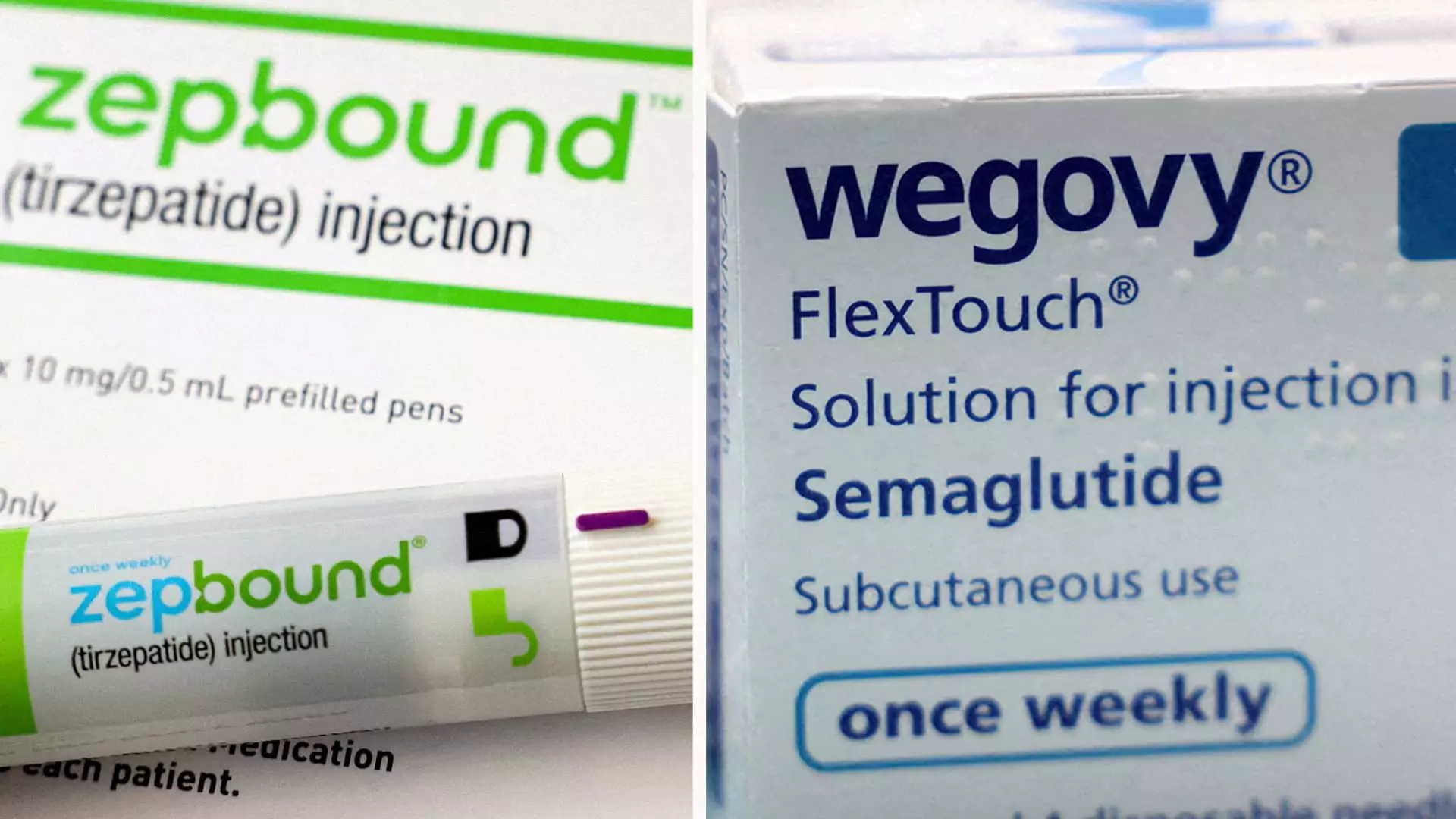The fight against obesity has taken a significant turn with the emergence of new pharmacological options. Eli Lilly recently announced impressive results from its clinical trials for Zepbound, a drug designed for weight loss, positioning it as a formidable competitor to Novo Nordisk’s Wegovy. Both drugs represent a promising avenue for addressing obesity, a chronic health issue that continues to escalate globally. However, recent findings suggest Zepbound may hold a notable advantage over its rival, leading to questions about the future of these treatments in a market projected to be worth up to $150 billion by the early 2030s.
Eli Lilly’s latest trial reveals that participants using Zepbound achieved an average weight loss of 20.2%—roughly equivalent to 50 pounds—over a span of 72 weeks. In contrast, participants using Wegovy experienced a 13.7% weight loss, or about 33 pounds, during a similar time frame. This striking difference, underscored by Zepbound’s 47% greater relative weight reduction compared to Wegovy, raises intriguing discussions about the potential shifts in treatment protocols for overweight and obese individuals.
Moreover, the data indicate that Zepbound led to a quarter of its participants losing at least 25% of their original body weight. This phenomenon was observed in considerably fewer Wegovy users, highlighting an important distinction when evaluating the effectiveness of these treatments.
The mechanisms through which these medications operate differ significantly. Zepbound functions by engaging two specific gut hormones—GIP and GLP-1—regulating appetite and blood sugar levels. On the other hand, Wegovy focuses solely on the GLP-1 aspect. Research suggests that targeting GIP alongside GLP-1 may provide enhanced benefits, potentially explaining Zepbound’s superior performance in weight loss trials. This nuanced approach to hormone activation could fundamentally alter the way patients experience and manage their weight loss journeys.
As both companies vie for dominance in a rapidly expanding market, analysts project substantial financial returns. Some estimates suggest that Zepbound could accumulate as much as $27.2 billion in annual sales by 2030, while Wegovy may reach $18.7 billion. Such projections emphasize the high stakes involved in this competitive arena and the critical importance of clinical efficacy as a driving differentiator.
With Zepbound receiving FDA approval in late 2023, the timing of its entry into the market positions it strategically against Wegovy, which became available to patients two years prior. The competition not only fuels innovation but also propels companies to invest heavily in bolstering their manufacturing capabilities to meet surging demand.
Despite the promising data surrounding these weight loss treatments, barriers to access remain a significant concern. High costs, with each treatment priced around $1,000 per month, pose a challenge for uninsured or underinsured individuals. Current insurance coverage for obesity medications in the U.S. is inconsistent, leaving many patients without financial support for obtaining these treatments. Both Eli Lilly and Novo Nordisk must contend not only with each other but also with the systemic healthcare issues that affect patient access to life-changing medications.
As the battle between Zepbound and Wegovy unfolds, the implications for healthcare providers, patients, and pharmaceutical companies are profound. The evidence suggesting that Zepbound may outperform Wegovy catalyzes an essential discourse around treatment options for obesity, highlighting an area of medical research that is increasingly relevant. Continued evaluation and discussion of these emerging therapies will be instrumental in shaping future approaches to obesity management and patient health outcomes on a broader scale. Ultimately, Zepbound’s success may redefine the standards of weight loss treatment, offering hope to millions grappling with obesity.

